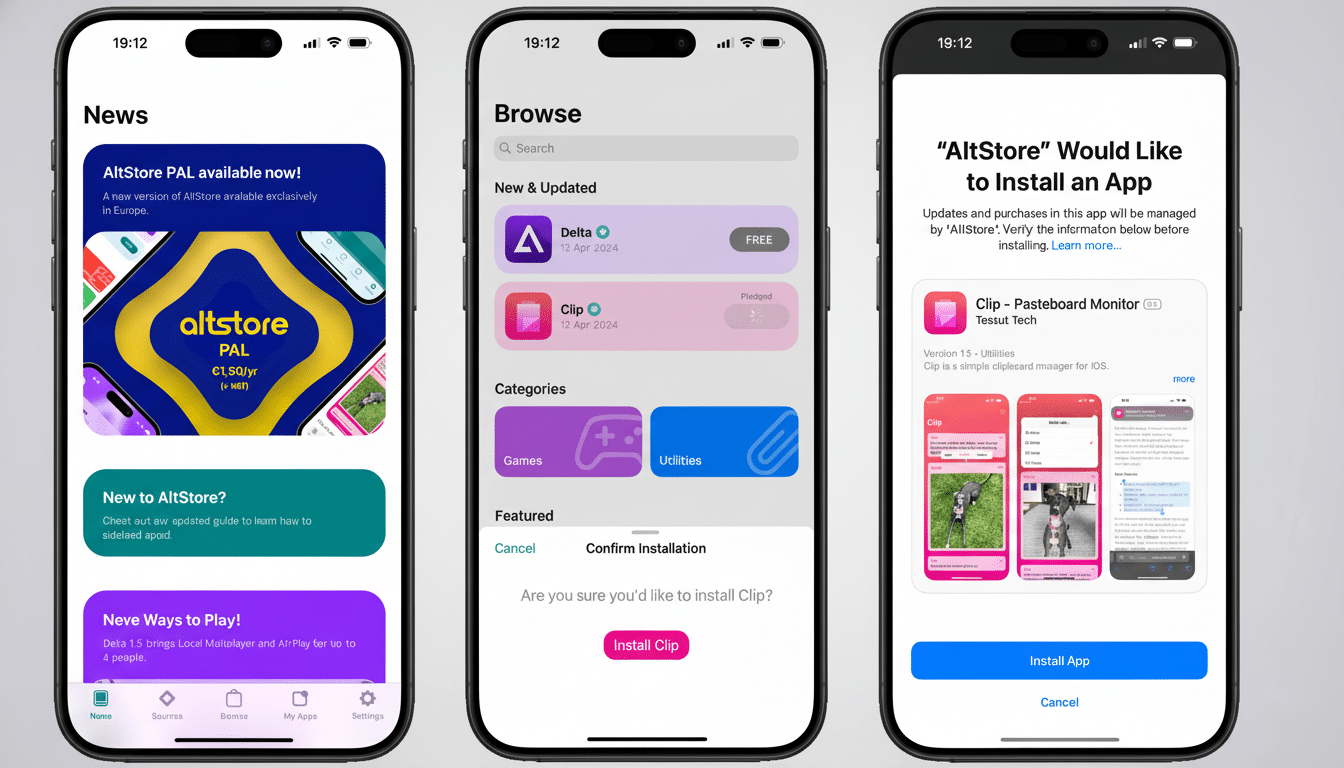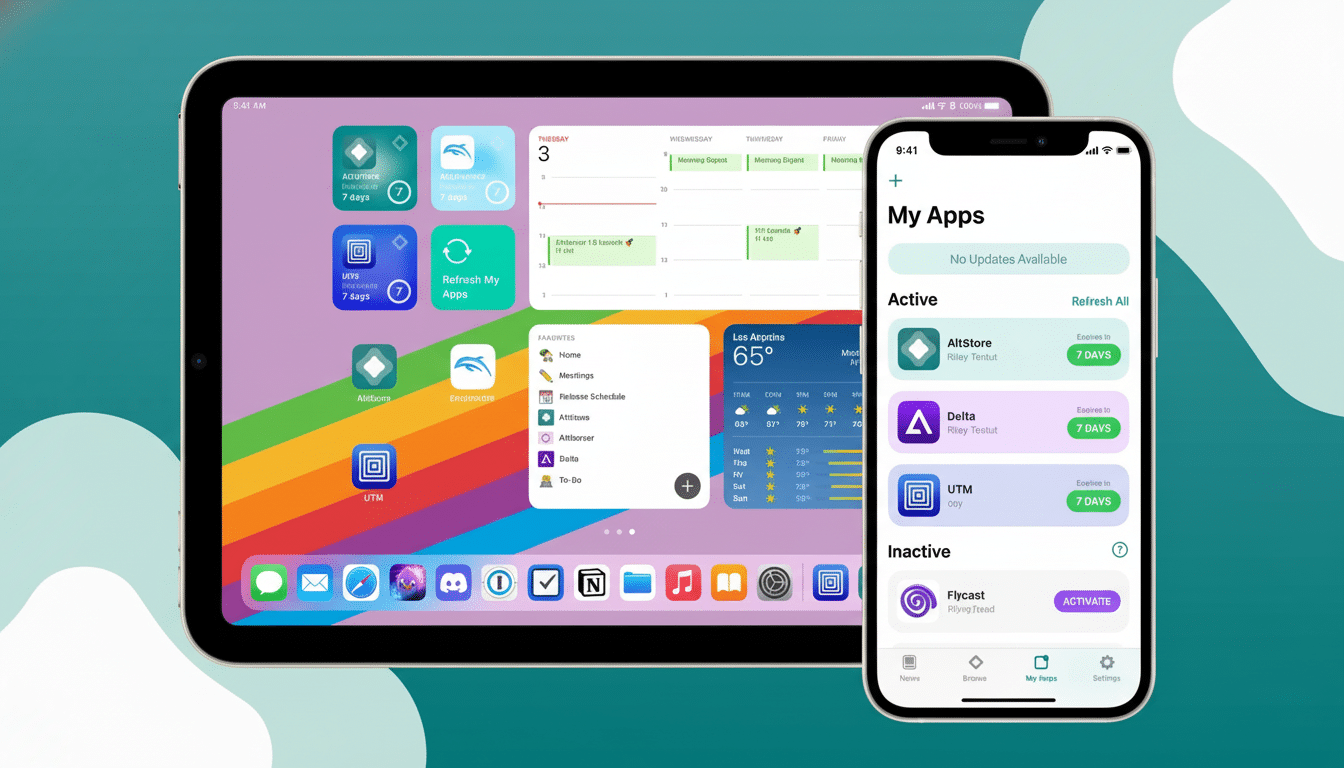The Series A is funded by Pace Capital, which receives a 15% share in AltStore and puts Flipboard CEO and fediverse fan Mike McCue on its board. The capital will be used to hire, as well as expand into new markets for New York-based Testut and Gill’s startup. Founders Riley Testut and Shane Gill are now based in New York and say that the money will be spent on hiring, expansion into new markets, and a deeper integration with open social protocols to increase app discovery.

Why This Raise Matters for AltStore and iOS Competition
AltStore quickly became one of the first third-party marketplaces to take advantage of the EU’s Digital Markets Act, which forced Apple to accept alternative distribution. The EU move offered a path, however tortured and indirect, for rival stores despite Apple’s notarization requirement and new business terms like the Core Technology Fee. In that sense, the new capital provides AltStore with breathing room as it builds out a team and refines operations amid policy and platform shifts.
The company plans to expand its AltStore PAL shop to countries outside Europe — like Australia, Brazil, and Japan — where competition and app store oversight are becoming more mature. With a wave of regulatory momentum behind it and new funding to support its efforts, AltStore is one of the only credible challengers that’s emerged and is still trying to make alternative distribution sustainable at scale.
Constructing A Social Layer for App Updates
In an interesting turn of events, AltStore is actually starting its own Mastodon instance running on ActivityPub. Developers choose to opt in and can share release notes and updates that users can follow from within Mastodon, or with any other ActivityPub service (including Threads). Updates are automatically pushed in from app metadata via JSON, so you can release updates to your users as a feed that anyone on the open social web can subscribe to.
Replies, likes, and conversation happen where users already hang rather than in a siloed changelog. But AltStore wants to create a fast track for updates into the AT Protocol ecosystem and is working with nonprofit A New Social and its Bridgy Fed project, Guido’s open-source, 15-year-old social media-to-RSS bridge on GitHub that has FTP access so users can manually post directly back to their blogs, to reach Bluesky users. The upshot in practical terms: app discovery is decentralized and more portable, as well as less reliant upon one store’s editorial picks.
For developers, that might mean lower marketing expenses and more transparent audience-building. For example, follow Delta’s account to get emulator updates or the virtual machine app UTM’s roadmap from your social timeline, then install with a tap when a release lands.
How We Got From Emulator Roots to a Broader Catalog
AltStore first gained notoriety with Delta, a slick emulator for past consoles that saw huge demand after EU laws allowed wider distribution. The store later tacked on UTM, a push that helped lead Apple to the decision to support virtual machines on iOS for real, and it forged a distribution partnership with Epic Games to finally bring Fortnite and other games over to AltStore PAL.

As an example of how alternative stores could build out iOS’s frontiers further, AltStore also carries adult content in the form of the app Hot Tub, openly providing a kind of software that Apple’s official App Store mostly prohibits.
On the business end, there’s no charge to developers for self-publishing to AltStore PAL, and the marketplace is set up with subscriptions, one-time purchases, and patronage-style donations — models preferred by indie teams hoping for a connection directly with users.
Investing Back Into the Fediverse to Strengthen Standards
AltStore is reserving $500,000 to help make the open social infrastructure it depends on stronger. That’s $300,000 for Mastodon gGmbH, plus support for additional projects and services:
- Bridgy Fed by A New Social
- Ivory and Phoenix by Tapbots (the folks behind Tweetbot)
- Tapestry by The Iconfactory
- mstdn.social instances
- Akkoma
- PeerTube
- BookWyrm
- Fedify
Supporting clients, bridges, servers, and protocols is AltStore’s way of not just sending to the fediverse; it’s pitching in for the commons.
What to Watch as AltStore Builds a Social App Network
Three questions loom.
- Moderation — running a Mastodon server for your app’s accounts means you are now subject to spam, impersonation risks, and the necessity to have clear moderation policies.
- Economics — in the EU, alternative stores have to work with Apple’s technical and financial terms, which can also grind margins down if growth takes off.
- Developer motivation — social feeds can help discovery, but sustained catalog growth will come from predictable payouts, frictionless installs, and trust.
Still, the strategic logic is strong. By combining a marketplace with an open social graph, AltStore turns the act of app updating into conversations that flow across networks instead of becoming locked in a storefront. If it scales responsibly — in terms of compliance, moderation, and developer economics — it could be a lasting second pillar for iOS distribution, an example of how open protocols are reshaping discovery.

